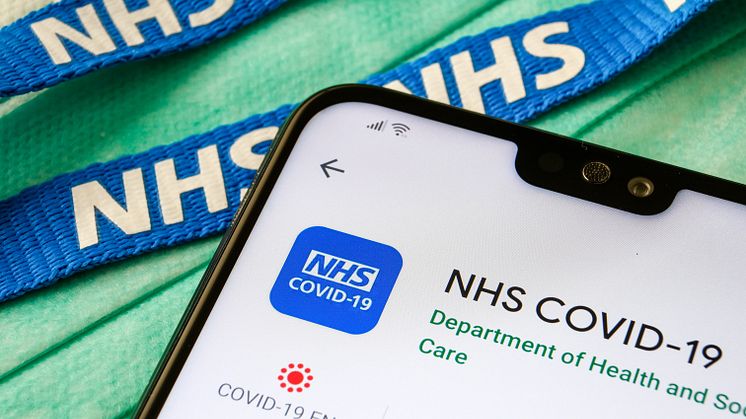
Press release -
Public trust in using data to tackle the Covid-19 pandemic cannot be assumed, researchers warn
Researchers from the Observatory for Monitoring Data-Driven Approaches to Covid-19 (OMDDAC) have published a final report on a study part-led by academics at Northumbria University to understand public attitudes toward sharing data and personal information to shape the UK’s response to the pandemic.
A key part of the research also focused on the attitudes of children and young people and whether their views on the use of data have been overlooked.
The findings of the report will now help inform key decision makers in Government on how to keep public trust in their use of data-driven solutions, such as algorithms built using personal data from different sources as discussed in the Government’s National Data and AI Strategies. Without this trust, there are clear risks that efforts to use data-driven approaches for public good can be undermined.
OMDDAC is funded by the Arts and Humanities Research Council (AHRC) as part of UK Research and Innovation (UKRI’s) rapid response to COVID-19. Led by Dr Marion Oswald from Northumbria Law School in partnership with the Royal United Services Institute (RUSI), the research has focused upon legal, ethical, policy and operational challenges of using technology and data-driven solutions to the pandemic.
Commenting on the findings of the report Marion Oswald said: “Data and technology-driven solutions have been central to the UK’s response to the pandemic, and out of necessity these were developed at speed. Our research found that it cannot be assumed the public are comfortable sharing their data across all sections of the public sector. For example, participants we interviewed were significantly less willing to share data with police as compared with their local authority or public health body. Indeed, we found little difference in participants’ preference for sharing data with their Regional Police Force, as compared with a commercial company. Based on these findings we have made a number of recommendations in the OMDDAC report, aimed at ensuring data analysis and use is conducted ethically, with integrity and under clear rules of governance.” Research Fellow, Rachel Allsopp added: ”Our recommendations include the appointment of an independent oversight body, and legally binding limitations on the use of data by the Government and other official bodies. Without such safeguards in place public trust could diminish significantly”.
OMDDAC researcher and Northumbria Law School academic Dr Claire Bessant commented: “Our research also found that children and young people believe their views have not been considered enough during the pandemic, despite feeling they have something meaningful and valuable to contribute to the debate around the use of data to tackle emergencies such as Covid. They suggest the Government could do more to ensure young people can access information, particularly information about policies which will impact directly upon them. They also suggest various routes Government could use to improve engagement, including through schools, surveys, social media, and youth organisations.”
OMDDAC is a collaboration between Northumbria and RUSI, including researchers with technology law, data protection law, medical law, practical ethics, computer science, data science, applied statistics in health, technology studies and behavioural science expertise. Project partners and advisers include the Ada Lovelace Institute, CDEI, medConfidential and Lord Jonathan Evans of Weardale.
The full report, including recommendations, can be found on the OMDDAC website.
Notes to editors:
About UK Research and Innovation
UK Research and Innovation (UKRI) is the largest public funder of research and innovation in the UK, with a budget of over £8bn. It is composed of seven disciplinary research councils, Innovate UK and Research England.
We operate across the whole country and work with our many partners in higher education, research organisations businesses, government, and charities.
Our vision is for an outstanding research and innovation system in the UK that gives everyone the opportunity to contribute and to benefit, enriching lives locally, nationally and internationally.
Our mission is to convene, catalyse and invest in close collaboration with others to build a thriving, inclusive research and innovation system that connects discovery to prosperity and public good.
About the Arts and Humanities Research Council
The Arts and Humanities Research Council (AHRC), part of UK Research and Innovation, funds internationally outstanding independent researchers across the whole range of the arts and humanities: history, archaeology, digital content, philosophy, languages and literature, design, heritage, area studies, the creative and performing arts, and much more.
The quality and range of research supported by AHRC works for the good of UK society and culture and contributes both to UK economic success and to the culture and welfare of societies across the globe.
You can find out more information via ahrc.ukri.org or following us on Twitter at @ahrcpress or Facebook at @artsandhumanitiesresearchcouncil.
Topics
Categories
Northumbria is a research-rich, business-focused, professional university with a global reputation for academic excellence. Find out more about us at www.northumbria.ac.uk --- Please contact our Media and Communications team at media.communications@northumbria.ac.uk with any media enquiries or interview requests ---











